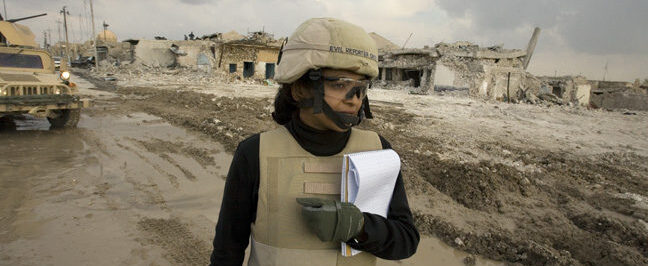
I woke up to extremely sad news today. NPR photojournalist David Gilkey was killed in Afghanistan, along with interpreter Zabihullah Tamanna.
Another friend who worked tirelessly in the world’s most difficult places, gone.
David and Zabihullah were traveling with an Afghan army unit, according to the report I heard on NPR this morning. They came under fire and their armored Humvee was hit by a rocket-propelled grenade. Also killed was their driver, an Afghan soldier.
David was only 50 years old.
He was an incredible photojournalist. His photographs were often difficult to look at and yet I could never turn away. He was so good at capturing the essence of a place through its people.
He won many well-deserved accolades, including the Polk Award. I encourage everyone to look at his work: His NPR profile page and the NPR tribute today
I first met Gilkey in Iraq. I can’t remember exactly which year it was or even where it was. Later, I got to know him better through Military Reporters and Editors. We were both newspaper journalists then — he with the Detroit Free Press and I with the Atlanta Journal-Constitution.
I ran into him in Haiti, after the earthquake in 2010. By then, we had both left the shrinking newspaper world. He joined NPR in 2007 and I had been with CNN for about a year. We spoke about our transitions and he said:
“You’re a writer who works for a cable television network and I’m a photog who works for radio. Go figure.”
We laughed. He told me he was thankful he could carry on his work. And it was such important work. David gave us an understanding of people who are so often forgotten.
He said this about his work in Haiti, according to NPR: “It’s not just reporting. It’s not just taking pictures. It’s, ‘Do those visuals, do the stories, do they change somebody’s mind enough to take action?’ So if we’re doing our part, it gets people to do their part. Hopefully.”
We forget the risks that journalists take to bring us important stories. We forget until we are reminded by tragedy.
A few days ago, I spoke with Paula Bronstein, another photojournalist who has put herself in harm’s way countless times to tell the sad story of Afghanistan. Paula recently returned to the United States to receive a courage award named for Anja Niedringhaus, also killed in Afghanistan in 2014. You can see that story here: http://www.cnn.com/2016/05/31/middleeast/cnnphotos-afghanistan-between-hope-and-fear/
I thought today of all the journalists I knew who were killed in conflict. In all, 1,192 journalists have died this way since 1992, says The Committee to Protect Journalists. So many important voices silenced too soon by war.
